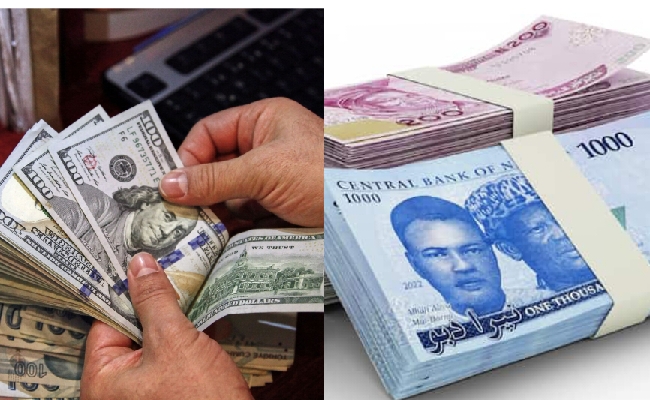The Nigerian naira experienced a substantial decline to N1089.51/$ on the official Investor and Exporter (I&E) window on Tuesday, marking a 27.19% decrease from its closing rate of N856.57/$ on Monday, as reported by the FMDQ Securities Exchange.
Trading commenced with the naira opening at N922.22/$, reaching a high of N1251/$, and a low of N720/$ before settling at N1089.51/$ by the close of the day. The total forex turnover for the day amounted to $97.45 million. This marks the fourth occurrence of the naira closing below N1,000 on the official window.
The current rate of N1089.51/$ is the second-lowest since the Central Bank of Nigeria removed the rate cap on the currency. Despite the CBN’s efforts to address matured foreign exchange obligations and clear backlogs, the naira’s decline persists.
The CBN recently disclosed paying $2 billion as part of its backlog obligations, with reports indicating outstanding obligations of $7 billion in forward contracts. The Acting Director of Corporate Communications at CBN, Hakama Alia, stated that these efforts aim to alleviate pressure on the country’s exchange rate and boost investor confidence.
The ongoing depreciation of the naira occurs amid renewed government efforts to enhance liquidity in the foreign exchange market. The Finance Minister, Wale Edun, revealed that the Federal Government secured a $2.25 billion foreign exchange support facility from the African Import-Export Bank, with the first tranche of the $3.3 billion facility targeted at addressing FX shortages.
Commenting on the situation, Dr. Ayo Teriba, CEO of Economic Associates, emphasized the naira’s volatility due to inadequate foreign exchange supply and declining reserves. He expressed optimism in the government’s potential to stabilize the naira by attracting foreign exchange inflows through strategic measures.
Teriba underscored the need to expedite actions such as opening up to investors, bringing NNPC to the market, and creating avenues for foreign exchange inflows to build reserves. He emphasized that addressing these issues would lead to naira stabilization, reduced inflation, economic growth, and improved living standards. Teriba cautioned that without prompt action, the volatility in the exchange rate could persist, creating an ongoing challenge for the economy.


